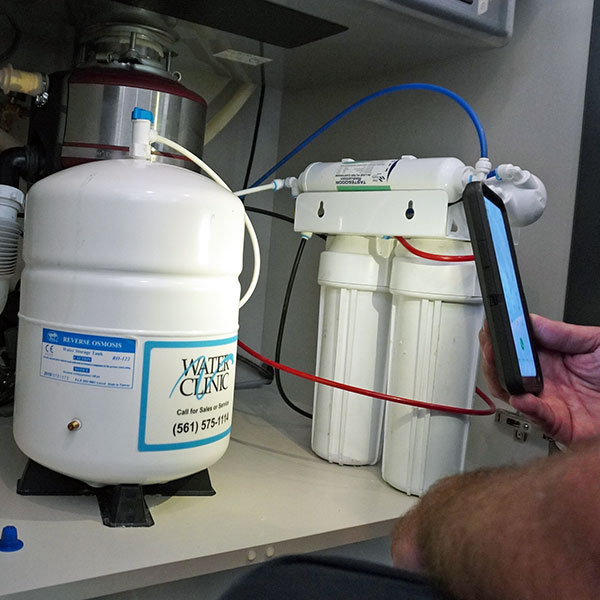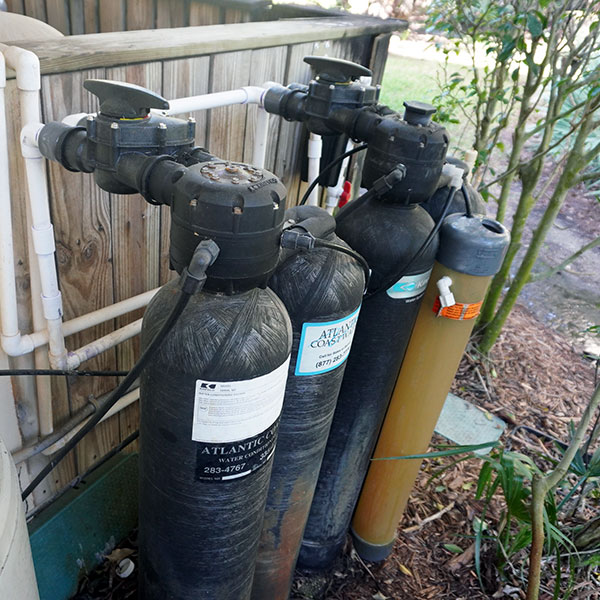Water Treatment vs. Water Filtration
If you don’t have a whole house water filtration system set up in your home, you might notice that your water doesn’t taste or smell fresh or clean. You could taste a small amount of metal caused by rusty pipes, mineral deposits, and other contaminants stemming from your city’s water supply. If you want to do something about it, water treatment and water purification are two ways you can rectify these issues. But knowing the right one to choose and what the difference between the two are can be tricky. We are here to explain how both processes work to help you make the right decision for cleaner water at home.
What is water treatment?
 This is also known as water purification and involves removing potentially harmful impurities from drinking water. However, water treatment focuses on killing biological contaminating agents in water with the help of iodine or chlorine. Water treatment partakes in processes like the following:
This is also known as water purification and involves removing potentially harmful impurities from drinking water. However, water treatment focuses on killing biological contaminating agents in water with the help of iodine or chlorine. Water treatment partakes in processes like the following:
UV treatment
UV technology destroys the DNA of living organisms including all cells, viruses, and spores – rendering them harmless to your health.
Deionization
The deionization method filters all solids based on their ionic charge.
Distillation
With distillation, water is converted to steam via evaporation, then it is condensed into a liquid in another container. This helps separate chemicals from water, as well as destroys viruses and bacteria.
Reverse Osmosis
Reverse Osmosis pushes untreated water through a semipermeable membrane that only lets water molecules through while other contaminants are collected and flushed away.
These processes inevitably remove all impurities from water, which can contribute to enhancements in texture, taste and consistency. Overall, purification is a great way to ensure that your water is perfectly safe to drink.
 What is water filtration?
What is water filtration?
Water filtration is essentially working to remove impurities such as sand and living organisms out of your water system in order to improve its taste. In order to achieve this, a home filtration system is needed and can be permanently installed in your home. Many water filtration systems use activated carbon to block out unwanted microscopic contaminants from entering your home water. And since most toxic water impurities are carbon-based, water filtration can be extremely effective. Water filtration also does wonders in improving the texture of your drinking water.
If you do choose a filtration system over a water treatment system, keep in mind the system will only be removing impurities like water organisms and sediment, but not trace amounts of chemicals or potential viruses. So if your focus is removing trace minerals for a better taste in water, a filtration system might be right for you.
Which one should I choose?
This all depends on what you are focusing on eliminating in your water. A filtration system might be best for you if you are focused on trying to get water that tastes better for you. But if you live in an area that is known to have polluted or contaminated water, it might be best to opt for a water treatment system. Or you can search around and find a system that offers the best of both worlds at a reasonable price. Either way, we recommend you talk to local professionals who can aid you in your decision towards cleaner and healthier drinking water for your home or business.
Atlantic Coast Water Clinic
https://www.atlanticcoastwater.com/request-a-quote//
772.283.4767


 772-283-4767
772-283-4767